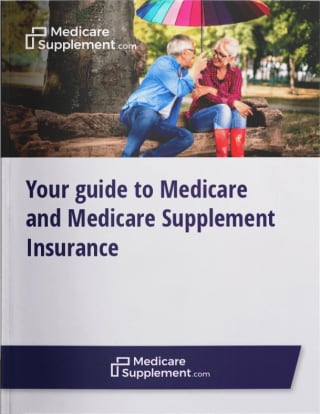There may come a point in time when support from family, friends and local aging-related programs may not be sufficient to care for an elderly loved one. He or she may require part-time or full-time help provided by a residential facility that can offer all of the long-term care and services they require.
There are several different types of facilities that can provide long-term elder care, and it’s wise to know what each can and cannot provide. The best time to start planning for senior care is before you or your loved ones need it. You want to be able to act quickly in the event of an unexpected health emergency that requires a quick decision.
To make an informed decision, now is the time to learn the differences among these types of facilities and how Medicare may or may not cover them.
4 Types of Long Term Care Facilities
Some people may consider an assisted living center and a nursing home to be the same thing. They are not the same, and they’re just two of several different options for senior care.
According to the National Institute on Aging, there are four basic types of long-term care facilities:
- Assisted living facility
- Skilled nursing facility
- Board and care home
- Continuing care retirement community
What Is an Assisted Living Facility?
Assisted living facilities (ALF) provide some assistance to seniors who still can care for themselves most of the time, but occasionally need some help with certain activities of daily living (ADL), including but not limited to:
- Laundry
- Cooking
- Cleaning
- Household chores
- Bathing or Showering
- Transportation
- Medication management
Most assisted living facilities offer housing along with some basic services. In some situations, a resident can purchase other services from a menu of offerings as needed.
Modern assisted living facilities often are nicely appointed apartment complexes or housing developments. They typically have common dining rooms, community rooms and facilities like a gym, pool or spa. They also include 24-hour security and often organize social and recreational events both in the facility and out to museums, movies, sporting events or other cultural activities.
However, an assisted living facility is not equipped to offer complex medical care or full-time help for daily living. If your loved one needs that intensive level of care, you may want to consider a skilled nursing facility.
What Is a Skilled Nursing Facility?
A skilled nursing facility (SNF) is able to provide a higher level of medical care. The SNF can also assist with the activities of daily living, but they include state-licensed, trained and registered healthcare staff to provide more intensive care, such as:
- Nursing care
- Rehabilitation services, including physical, occupational and speech therapy
- Aid in toileting, getting dressed or in and out of bed
- Frequent or daily medical management for chronic conditions
Some skilled nursing facilities may offer separate, specialized memory care units to provide housing and healthcare for patients suffering from Alzheimer’s disease and other forms of dementia.
According to the National Institute on Aging, some people may need to stay at a skilled nursing facility only for a short time after being hospitalized for an acute event such as a heart attack. After they recover, they go home. However, many nursing home residents are permanent, because they have long-term, chronic physical or mental conditions that require full-time care and medical supervision.
Board and Care Homes
Board and care homes, also called residential care facilities or group homes, are small, private facilities, usually with 20 or fewer residents. Both private and shared rooms may be available, depending on the home.
Residents of board and care homes typically receive personal care and meals, and staff are available around the clock. Nursing and medical care may or may not be provided on site.
Continuing Care Retirement Communities
A continuing care retirement community may offer several different levels of care and services, all on one campus location. Also called a life care community, a continuing care retirement community may include all types of elder care and services:
- Independent housing (houses or apartments)
- Assisted living
- Skilled nursing care
- Healthcare services
- Recreation programs
You may choose where to live in a continuing care community based on your current health and the level of service you need, then adjust your living space as your needs change. For example, you might start independently, and when you need more help with ADLs, you can receive care and assistance at home, move into the an assisted living facility or, if necessary, enter a skilled nursing facility.
How To Choose the Right Facility
The first step in choosing the right facility for yourself or a loved one is to assess the level needs that must be met.
Elder care professionals measure the ability to perform the Activities of Daily Living. The National Institutes of Health break these ADLs into two categories.
Basic ADLs:
- Ambulating: The extent of an individual’s ability to move from one position to another and walk independently
- Feeding: The ability of a person to feed oneself.
- Dressing: The ability to select appropriate clothes and to put the clothes on
- Personal hygiene: The ability to bathe and groom oneself and to maintaining dental hygiene, nail and hair care
- Continence: The ability to control bladder and bowel function
- Toileting: The ability to get to and from the toilet, using it appropriately and clean oneself
Instrumental ADLs:
- Transportation and shopping: The ability to procure groceries and attend events
- Managing transportation, either via driving or by organizing other means of transport
- Managing finances: This includes the ability to pay bills and manage financial assets
- Shopping and meal preparation. That includes everything required to get a meal on the table and shopping for clothing and other items required for daily life
- Housecleaning and home maintenance, such as cleaning kitchens after eating, maintaining living areas reasonably clean and tidy and keeping up with home maintenance
- Managing communication with others: The ability to manage telephone and mail
- Managing medications: the ability to obtain medications and taking them as directed
Your doctor or the facility itself can assess the level of need and recommend which type of facility is appropriate.
Does Medicare Cover Senior Care?
Medicare can cover skilled nursing facility care, depending on the level of care needed, the facility where the care is administered and several other key factors.
Medicare does not cover custodial care, however, if that’s the only care that a person needs. Custodial care refers to care related to activities of daily living such as going to the bathroom, bathing, eating and other non-health related care.
If Medicare covers your skilled nursing facility care, you won’t be responsible for a coinsurance payment for the first 20 days of your stay, though you may need to meet your Part A deductible if you haven’t already met it for that benefit period. After day 20, you’re responsible for a daily coinsurance cost of $204 per day in 2024. If your stay lasts longer than 100 days, you’re responsible for all costs.
There are Medicare Supplement (Medigap) plans that can help fully or partially cover the cost of a Medicare-covered skilled nursing facility stay. To learn more and compare plans, you can find plans where you live online or call to speak with a licensed insurance agent.



